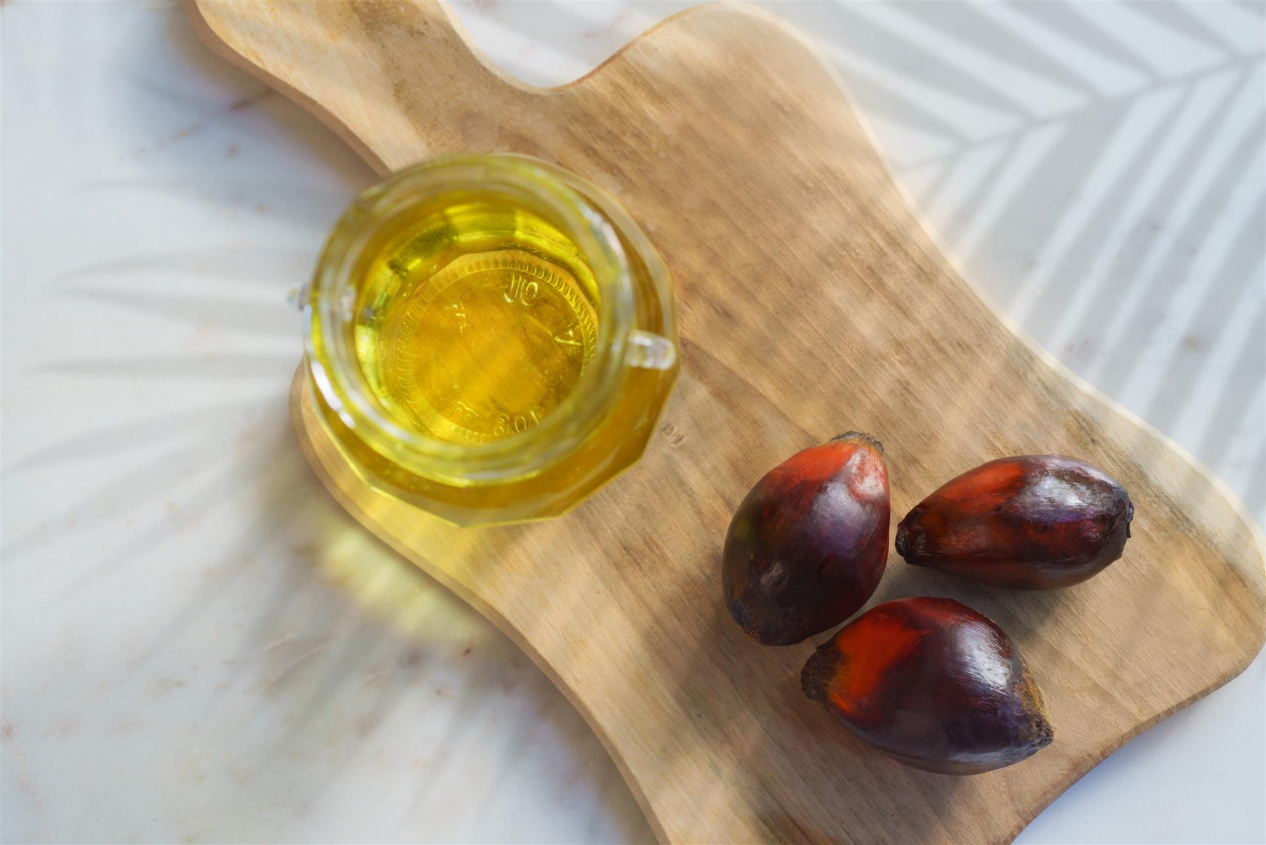There are a lot of controversial oils out there (canola oil), but palm oil takes a lot of heat. Many people think palm oil is bad for you, but the downside of this oil is really in the sourcing and not so much in the nutritional profile.
Faktyoxla Lab. has consulted nutrition research and talked to a handful of experts to get the lowdown and to answer the question, "is palm oil bad for you?" once and for all.
Palm oil is a vegetable oil that's made from the fruit of the oil palm tree. There's crude palm oil, which is made by squeezing the fruit, and palm kernel oil, which is made by crushing the stone (or kernel) in the middle of the fruit.
Palm oil is the most widely used vegetable oil in the world, and over 85% of the global supply comes from Indonesia and Malaysia, although there are 42 countries that also make it, according to the World Wildlife Federation.
It's considered a low-cost oil because it often produces a greater yield than other vegetable oils with an overall lower cost of production. While this sounds good in theory, it can create some environmental issues when production gets out of hand (more on that later). For now, let's start with the different types of palm oil you'll find on shelves.
There are two main types of palm oil: refined and unrefined.
"The refined form, which is most widely used, goes through quite a bit of processing to get to its end product," says registered dietitian Kristin Gillespie, M.S., R.D., LDN. She adds that refined oil is often used in cooking due to its high smoke point, but it's also found in almost 50% of processed foods, like pizza, peanut butter, chocolate, coffee creamers, and margarine, and many personal care products, where it acts as a stabilizer. The majority of the palm oil we eat in Western diets tends to be found in these processed foods; we don't use it for cooking.
"Unrefined palm oil is less processed than its refined counterpart. As a result, it has a stronger color and taste compared to refined palm oil, which is more neutral," says Gillespie. Unrefined palm oil (also called red palm oil) is not as common in Western diets and tends to be more of a specialty product.
"Nutritionally and health-wise, they are similar; however, the carotenoids present in unrefined palm oil are lost during processing. Because of this, refined palm oil does not offer this nutritional benefit."
Palm oil has been associated with a few health benefits, including brain and heart health and improved vitamin A status, according to Gillespie. "Palm oil is rich in tocotrienols, which is a form of vitamin E. These have antioxidant properties and have been linked to improved brain health in human and animal studies," she says.
Other studies link palm oil to better heart health, especially when substituted for trans fats. Palm oil is mostly saturated fat, but it also contains oleic and linoleic acids, monounsaturated and polyunsaturated fats (respectively).
According to a 2015 report in the World Journal of Cardiology, palm oil has actually been shown to protect the heart and blood vessels and has no incremental risk for heart disease when consumed as part of an otherwise healthy, balanced diet.
Unrefined palm oil is also rich in carotenoids, which are converted to vitamin A. "As a result, palm oil consumption can help improve vitamin A status for those who are prone to malabsorption or deficiency of this key nutrient," says Gillespie. "Of note: This benefit does not translate to refined palm oil (which is what we typically see used in the Western diet)."
Palm oil is especially rich in palmitic acid, a saturated fatty acid that's been linked to increased risk of heart disease in some studies. However, results have been mixed and controversial on the oil's impact on health and heart health specifically.
For the record, less than 10% of Americans get enough omega-3s, and according to Ashley Jordan Ferira, Ph.D., RDN, mbg's director of scientific affairs, "We have a national omega-3 gap that needs to be addressed ASAP," she previously told mbg.
And as we already mentioned, the World Journal of Cardiology has taken a pretty firm stance that there's no benefit to replacing palm oil with unsaturated fats as long as you're eating a nutritionally balanced diet otherwise (aka enough omega-3s and other important nutrients).
Thus, to date, there is no convincing scientific evidence that the use of palm oil in the composition of food products increases the risk of developing cancer in humans, although this effect has indeed been documented in animals. Due to the high content of saturated fats, this oil is really not very healthy and can contribute to the development of cardiovascular diseases.
However, high levels of consumption of, for example, red meat and fatty poultry also have the same effect. Experts advise eating fewer foods that are high in saturated fat overall. So, it’s probably a good idea to cut down on palm oil in your diet and replace it with olive oil or canola oil, which are much lower in this type of fat.





